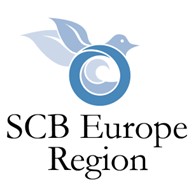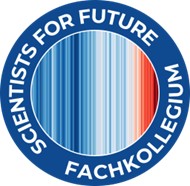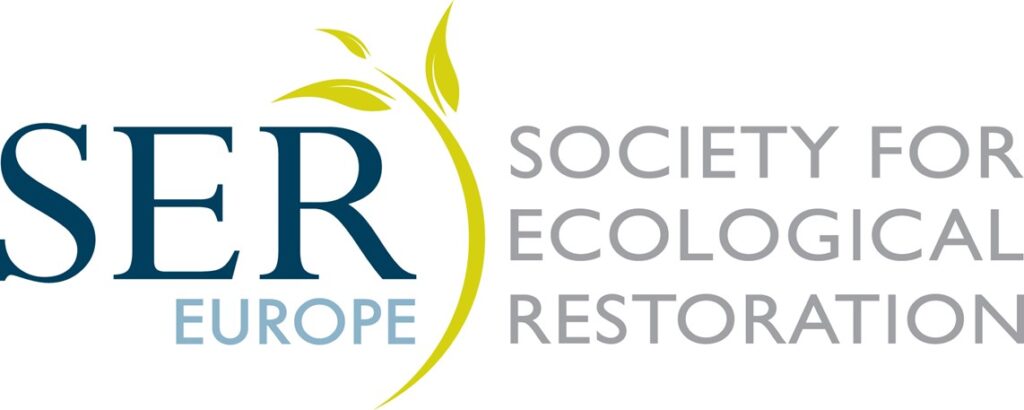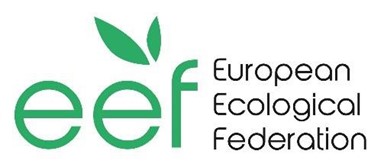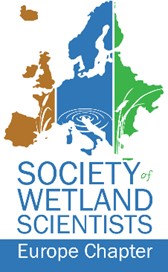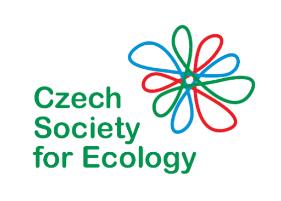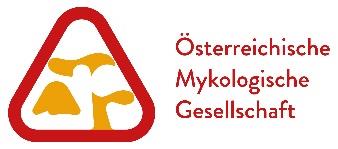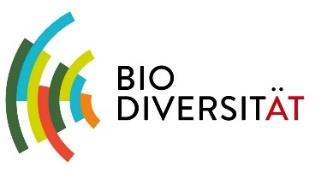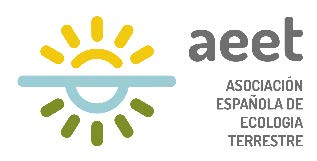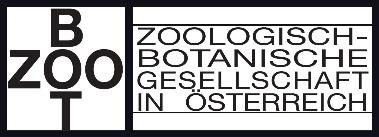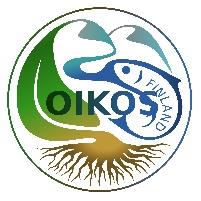Europe For Nature
Open Letter
Expression of Concern by Scientists: Rollback of EU environmental legislation and policies jeopardises the future of EU citizens
Dear Policymakers,
As scientists, we observe with grave concern the rushed deregulation of environmental standards and regulations in the EU and the unwarranted opposition to the Green Deal. Within merely a few months, decisions have been taken that amount to a systematic, retrograde attack on the Green Deal. These actions not only undermine the EU’s own agenda and its international obligations and global forerunners’ role, but even cancel past achievements. We list some of the key decisions and actions where we see poor justification, but substantive scientific evidence against them.
1. Sustainable Use Regulation (SUR)
The Commission’s original SUR proposal aligned with strong evidence of the broad and increasing prevalence of agrochemicals in our food and water and the associated negative impacts on human health and the environment. Despite repeated weakening, the SUR was rejected by the European Parliament and then withdrawn by the Commission. In doing so, they ignored an evidence-based open letter signed by 6000 scientists and an appeal from over 1 million citizens in favour of the SUR.
2. Common Agricultural Policy (CAP)
Both the Parliament and Council voted hastily for a Commission proposal to weaken the environmental effectiveness of five out of nine basic environmental standards – including the elimination of fallow land on arable land and enhancing the possibilities to convert grassland into arable land. While there is no evidence that these decisions would address the core problems for farmers, they may enhance the risks for farming – and food security – by accelerating soil erosion, land degradation and biodiversity loss, worsening the potential impacts of extreme weather events, and further degrading key ecosystem services that are key to agriculture such as pest control, pollination and water retention.
3. Nature Restoration Law (NRL)
The cost-efficiency of nature restoration is well known. The fact that 80 % of habitat types are in poor conditions in the EU, and rapid overall environmental degradation, demonstrates the urgency of the NRL to restore ecosystems. Its positive contributions to society, including human health, food security, resilience to extreme weather events, and carbon sequestration, have been repeatedly highlighted and called for by scientists, civil society, and businesses. Following intense trilogue negotiations between the Parliament, the Council and the Commission, the NRL was finally approved by the Parliament. It is now held back by a few countries that utilise procedural minority protection provisions, in contradiction to an established scientific consensus and an appeal from over 1 million citizens in favour of the NRL.
4. Commission’s Draft for exemptions in the Nitrate Directive
Current plans of the EU Commission to relax the obligations within the Nitrate Directive could lead to increasing nitrate application in agriculture. Implications include the worsening of water quality in surface and groundwater, as well as downstream effects, e.g., on the North Sea and Baltic Sea, whose situation is already beyond critical. With N surplus levels being exceptionally high in several regions of Europe, this relaxation could (again) increase greenhouse gas emissions from agriculture, enhance pollution, and stand in conflict with the EU’s commitment to strive toward climate neutrality.
5. Framework for Sustainable Food Systems (FSFS):
The Commission’s proposal for a FSFS, which was planned for release in autumn 2023, could address many concerns of both farmers and consumers. The fact that it disappeared from the Commission’s desk despite being ready for publication, warrants a societal debate.
These are only key examples among others – including the renewed approval of glyphosate use for another 10 years, the degradation of the “Soil Health Law” to mere “Soil Monitoring”, ongoing discussions around downgrading the protection status of large carnivores, calls to water down or even cancel the Deforestation Regulation, and halting the discussions on strict protection of old-growth forests. These decisions and processes represent an overall spirit of rollback of environmental standards and regulations, some of which being the outcomes of tens of years of efforts strongly supported by science and society.
An anti-environmental spirit seems to prevail among too many of the EU’s decision-makers. This is worrying for several reasons: Firstly, because much of the justification for these decisions is based on misinformation. Secondly, because these decisions seem to be strongly influenced by the particular interests of specific sub-groups and economic corporations within a narrow spectrum of society – partly expressing themselves through violent and/or undemocratic approaches. Thirdly, because these decisions conflict with their own stated aims by acting against the principles of sustainability. Namely, according to the best of science, these decisions are poorly justified and jeopardise our common future – including the future of the farmers they claim to aid. And finally, because as a global forerunner in climate, biodiversity and environmental legislation, the EU now sends highly regrettable signals to the rest of the world.
In a period of multiple crises, mostly resulting from breaching planetary boundaries, it is unacceptable that European governors opt to worsen the conditions that drive these crises: namely, overusing Earth’s resources, emitting greenhouse gases and pollutants, and disposing of waste, microplastic, and toxic material around us. As scientists, we strongly oppose policy choices that accelerate these avoidable crises. When food security is at stake, the real causes must be identified and tackled. These are environmental in nature and compounded by socio-economic factors. Accordingly, when considering the hazards generated by these decisions, we see them as violating core principles of the Treaty of the Functioning of the European Union (TFEU), such as the prevention principle, the precautionary principle (TFEU Article 191) and the duty to care.
We call policymakers to
- set a clear and ambitious agenda for environmental protection and the Green Deal for the post-election era, taking environmental issues seriously as they are posing severe threats to society;
- consult with scientists when in doubt to avoid acting on the basis of misinformation;
- take back changes within the CAP, given the risks of enhancing environmental problems and health hazards;
- approve the NRL as an urgent measure to complement and better coordinate the implementation of existing policies to tackle the biodiversity crisis and to improve society’s resilience to climate change;
- avoid further watering down of environmental regulations and policies (Nitrate Directives, Deforestation Regulation) by all means.
We finally call on citizens, civil-society organisations and political parties to support responsible policymaking that secure a safe(r) future within our planetary boundaries.
Sincerely,
The Society for Conservation Biology – Europe Region
Scientists for Future (Interdisciplinary Scientific Panel)
The Society for Ecological Restoration Europe
ALTER-Net
Ecological Society of Germany, Austria and Switzerland
European Ecological Federation
Netherlands Ecological Research Network
EuropeForNature
Ecosystem Services Partnership – European region
The International Mire Conservation Group
Society of Wetland Scientists
Austrian Mycological Society
Austrian Biodiversity Council of the Austrian Biodiversity Network
Hungarian Ecological Society
Czech Society for Ecology
Spanish Association for Terrestrial Ecology
Society for Tropical Ecology
Austrian Zoological-Botanical Society
Oikos Finland
Turku Zoological and Botanical Society
The Society for Conservation Biology – Europe Region is dedicated to facilitating, promoting, and advancing the scientific study and conservation of biological diversity. Info: https://conbio.org/groups/sections/europe
Scientists for Future (Fachkollegium) supports the global climate movement by providing facts and materials based on reliable and accepted scientific data to activists, politicians, decision-makers, educators and the general public. It is an independent and voluntary collective of scientists, researchers and academics from all kinds of disciplines, united by the deep concern for a shared future. Info: https://scientists4future.org/
The Society for Ecological Restoration Europe is the network that advances the science, practice, and policy of ecological restoration to sustain biodiversity, improve resilience in a changing climate, and re-establish an ecologically healthy relationship between nature and culture. Info: https://chapter.ser.org/europe/
ALTER-Net is the network of leading institutes from 21 European countries that share the goal of integrating their research capability to assess changes in biodiversity, analyse the effect of those changes on ecosystem services and inform the public and policymakers about this at a European scale. Info: https://alterneteurope.eu/
A Ecological Society of Germany, Austria and Switzerland (GfÖ
–Gesellschaft für Ökologie e.V.) is dedicated to ecology in science and practice. Its membership centres in Germany, Austria and Switzerland. The Society supports ecological research and training, and promotes the exchange of ecologists in academic institutions, public administration and the private sector by organising annual meetings and working groups.
A European Ecological Federation (EEF) enables cooperation between European ecological societies in order to promote the science of ecology in Europe. It is providing a forum for effective communication throughout the community of ecological scientists in Europe on matters of common interest by disseminating ecological knowledge through meetings, publications and other means.
The Netherlands Ecological Research Network (NERN)is the network of professional ecologists in the Netherlands where all universities and research institutes that have an ecology program participate. Info: NERN – The Netherlands Ecological Research Network
A EuropeForNature initiative is a network of scientists that aim to illustrate citizens in Europe the importance of prioritising nature and sustainability, and aim to empower them to use their voice by: 1) Harnessing the collective expertise, insights and visions for a sustainable future of scientists across Europe; and 2) Demonstrating widespread public support for sustainable European policies through proactive engagement and advocacy efforts. https://europefornature.eu/
The Ecosystem Services Partnership (ESP) – European region ESP is a Worldwideglobal network, connecting over 3,500 people, to enhance the science, policy and practice of connects ecosystem services for scientists, practitioners, stakeholders, and policymakers at local, national, regional, and global scales. ESP aims to enhance communication, coordination and cooperation, and to build a strong network of individuals and organisations working on ecosystem services. Info: http://www.es-partnership.org/
A International Mire Conservation Group (IMCG) is an international network of specialists who internationally promote, encourage and, where appropriate, co-ordinate the conservation and sustainable development of mires and related ecosystems; and internationally enhance the exchange of information and experience relating to mires and factors affecting them. IMCG encompasses over 550 contacts in almost 60 countries. International Mire Conservation Group
A Society of Wetland Scientists (SWS) works to promote best practices in wetland research, education, conservation, preservation, restoration, and management. SWS has over 3,000 members in more than 60 countries. Home – Society of Wetland Scientists
A Czech Society for Ecology (CSPE) is a professional society bringing together scientific, scientific-pedagogical and professional workers, students and other persons dealing with ecology. CSFE participate in the comprehensive, complex and systematic development of ecological disciplines, and in the promotion and implementation of research results, in nature protection and landscapes and expert activities in Central Europe. www.cspe.cz
A Austrian Mycological Society (ÖMG) is a network of professional and amateur mycologists and is open to all interested people. Universities, research institutes and citizen scientists representing practical and scientific mycology and having a deep interest in fungi, including systematics, distribution, ecology and conservation, cooperate.
Members of the Austrian Biodiversity Council of the Austrian Biodiversity Network are researchers from various disciplines as well as experts in the fields of biodiversity, landscape design and nature conservation. The Austrian Biodiversity Network sees itself as an open, interdisciplinary community encompassing a wide range of specialist disciplines and transdisciplinary for science, politics, administration, business, NGOs and civil society. The common goal is to strengthen biodiversity and its ecosystem services in Austria.
https://www.biodiversityaustria.at/biodiversitaetsrat/
https://www.biodiversityaustria.at/netzwerk/
Hungarian Ecological Society is an NGO of Hungarian ecologist researchers containing 145 members. Its main tasks are organizing scientific conferences, meetings, courses, summer schools, as well as representing the opinion of ecologists for the society. https://www.ecology.hu
A Spanish Association for Terrestrial Ecology (AEET) is an association that brings together nearly 1000 researchers in ecology from all the university centres and Public Research Institutions in Spain. The purpose of the AEET is to foster research in Ecology, to raise awareness and encourage public participation in matters of environmental interest and to promote the responsible application of Ecological knowledge
A Society for Tropical Ecology (Gesellschaft für Tropenökologie e.V., GTÖ) promotes and communicates new and emerging knowledge among tropical ecologists and conservationists to advance the understanding of tropical ecosystems and their protection. GTÖ’s goal is to connect students and academics with an interest in tropical ecology from around the world to understand and preserve the biodiversity and functions of tropical ecosystems. GTÖ is currently Europe’s largest scientific association for tropical ecology research. https://soctropecol.eu
Austrian Zoological-Botanical Society (“Zoologisch-Botanische Gesellschaft in Österreich”; ZooBot) supports nature conservation and science (especially organismic biology, ecology, and research on biodiversity).Thus it offers a platform for scientists, students, teachers at universities as well as other educational institutions, museum curators as well as interested laymen, cooperating with many other associations and institutions. The society is one of the longest existing in Austria and has around 400 members. https://www.zoobot.org/
Oikos Finland is the ecological society of Finland bringing together researchers in the field of ecology and evolutionary biology.
Turku Zoological and Botanical Society (Turun Eläin- ja Kasvitieteellinen Seura; TEKS) is a scientific society in the city of Turku, Finland, founded in 1923. It has about 80 members. TEKS activities mainly focus on popularising biological sciences to general public by organising regular talks of Finnish biologists to a wider audience, by organising excursions to interesting nature destinations both in Finland and neighbouring countries, and by publishing local biological investigations.
Links to relevant publications and open letters by scientists
On the Common Agricultural Policy (CAP):
- Leopoldina (2020): Biodiversity and Management of Agricultural Landscapes, Published by the German National Academy of Sciences Leopoldina, Halle/Saale, https://bit.ly/3RVnXtW
- WBAE (2019): Designing an effective agri-environment-climate policy as part of the post-2020 EU Common Agricultural Policy, Statement of the Scientific Board for Food and Environmental Policy (WBAE) at the Federal Ministry for Food and Agriculture, Berlin. https://bit.ly/4aDojvb
- WBAE (2018): For an EU Common Agricultural Policy serving the public good after 2020: Fundamental questions and recommendations, Statement of the Scientific Board for Food and Environmental Policy (WBAE) at the Federal Ministry for Food and Agriculture, Berlin. https://bit.ly/4bKtLOk
- Pe’er et al. (2020): Action needed for the EU Common Agricultural Policy to address sustainability challenges, People and Nature 2 (2): 305-316, https://doi.org/10.1002/pan3.10080
- Pe’er et al. (2022): How
can the European Common Agricultural Policy help halt biodiversity loss? Recommendations by over 300 experts, Conservation Letters 15 (6): e12901. https://doi.org/10.1111/conl.12901 - Jongeneel, R.A. (2018): Research for AGRI Committee – The CAP support beyond 2020: assessing the future structure of direct payments and the rural developments interventions in the light of the EU agricultural and environmental challenges, European Parliament, Policy Department for Structural and Cohesion Policies, Brussels, http://bit.ly/2zStfOk
NRL and SUR:
- Pe’er et al. (2023) Scientists support the EU’s Green Deal and reject the unjustified argumentation against the Sustainable Use Regulation and the Nature Restoration Law. https://doi.org/10.5281/zenodo.8128624 – signed by 6000 scientists
On the Nature Restoration Law (NRL):
- Hering et al. (2023), Securing success for the Nature Restoration Law. Science 382, 1248-1250. DOI: 10.1126/science.adk1658; Open Access link
- SER Europe Legal Working Group (2024). 10 legal reasons to vote in favour of the EU Nature Restoration Law. https://serchapter2018.wpenginepowered.com/europe/files/2024/
- SER Europe Legal Working Group (2022). The EU Nature Restoration Law: Providing legal certainty in tackling the biodiversity and climate crisis. https://serchapter2018.wpenginepowered.com/europe/files/2023/05/EU-Nature-Restoration-Law-essential-for-legal-certainty.pdf
- SER Europe (2022). SERE2022 Declaration on the European Commission Proposal for a Regulation on Nature Restoration. https://chapter.ser.org/europe/declaration-on-eu-nature-restoration-law-2022/
On carnivores in Europe:
- Revilla et al. 2023. Institutional Science for Policy Report on the damages produced by and the conservation status of wolves in Europe. Estación Biológica de Doñana CSIC. https://digital.csic.es/handle/10261/337169
On the Green Deal as a whole:
Schebesta, H. & J.J.L. Candel (2020): Game-changing potential of the EU’s Farm to Fork Strategy. Nat Food 1, 586–588. https://doi.org/10.1038/s43016-020-00166-9
